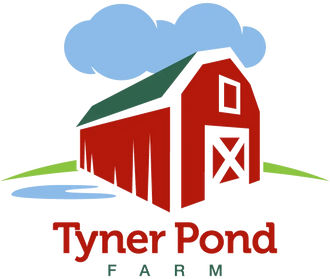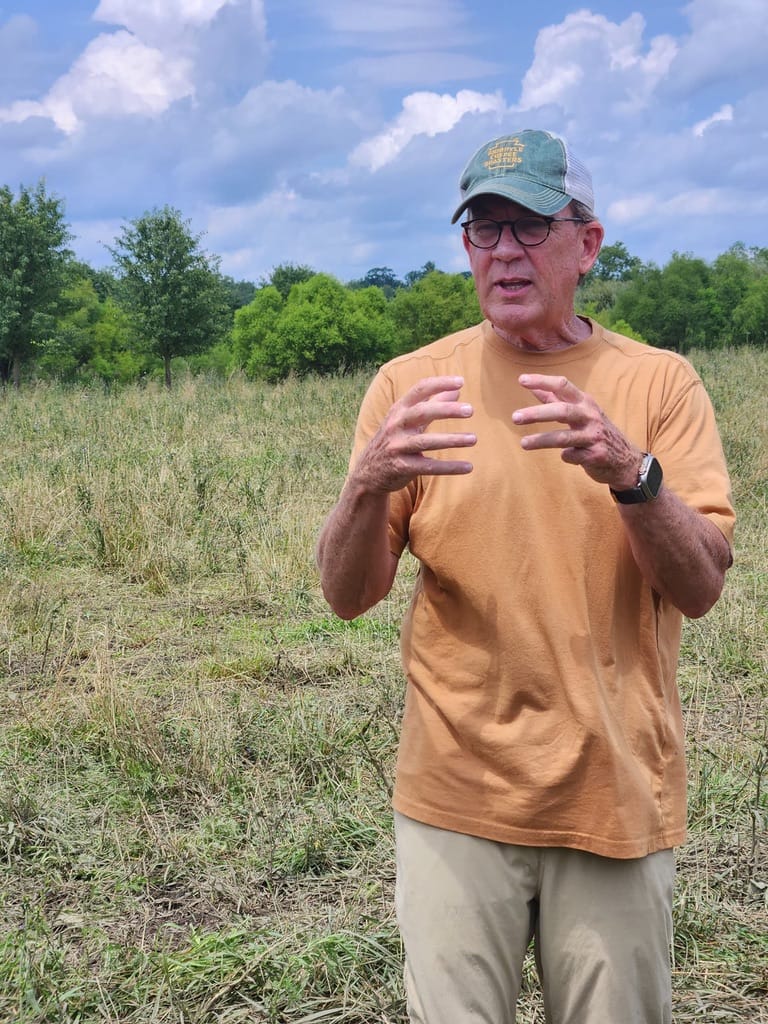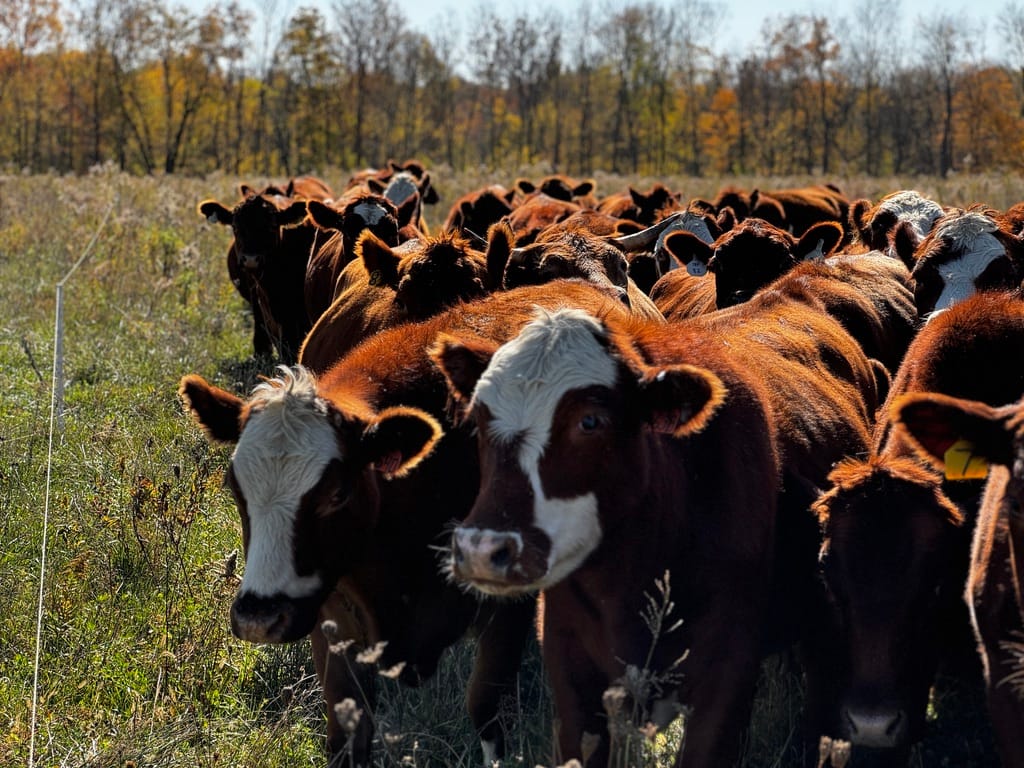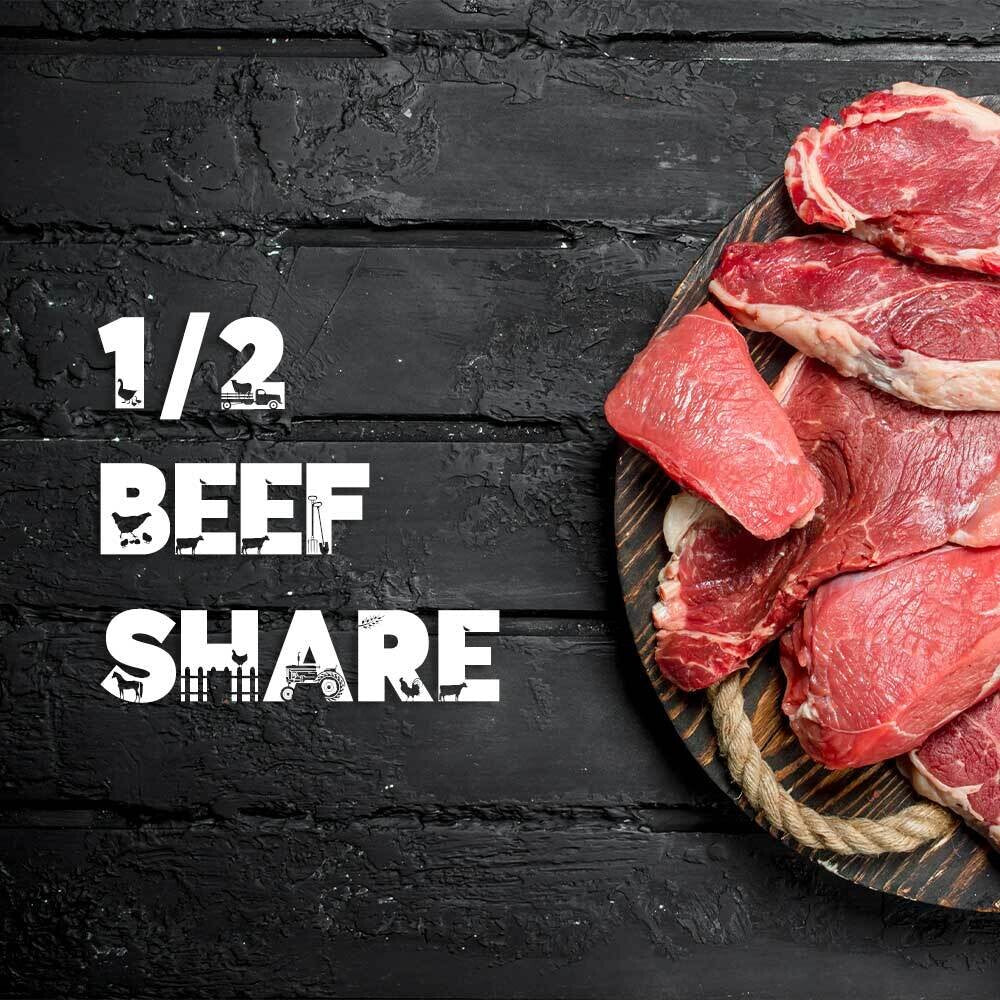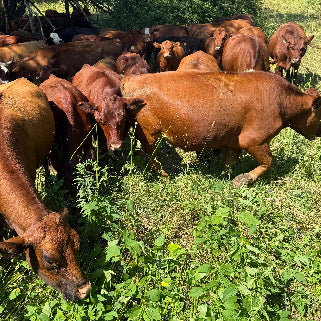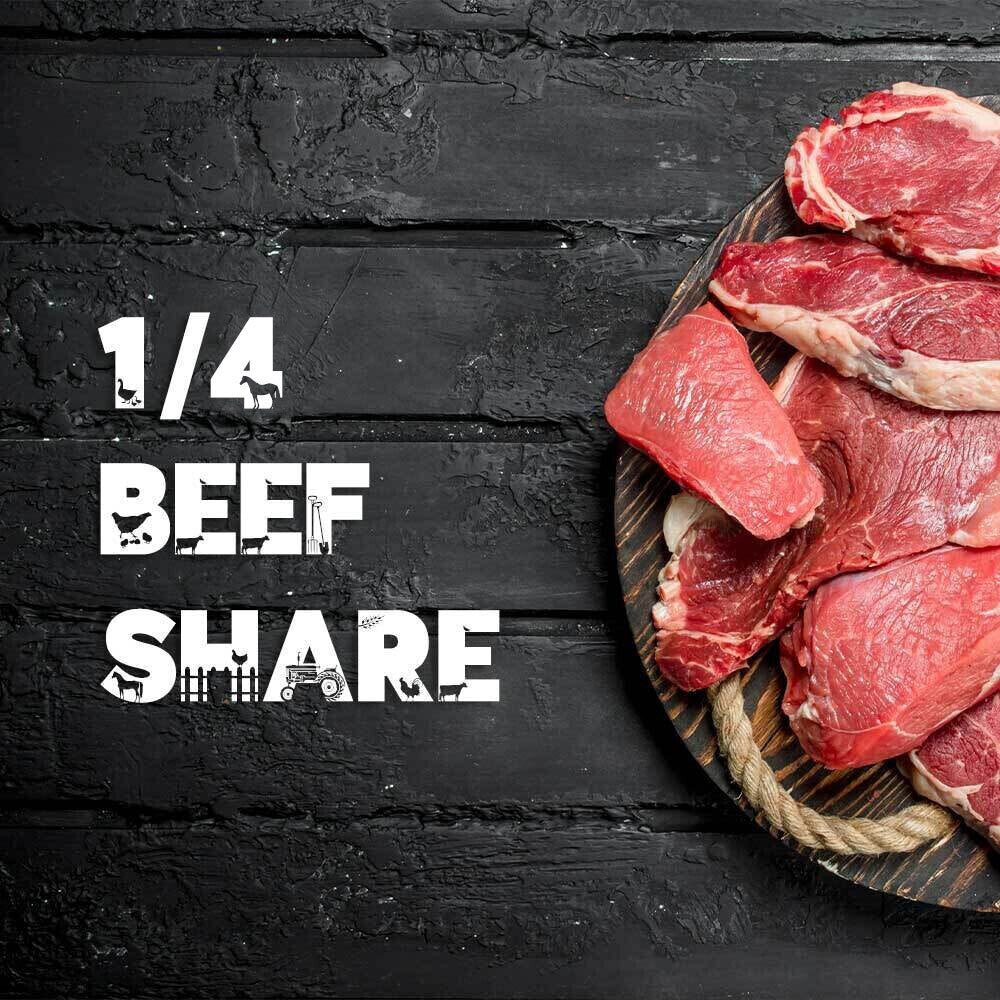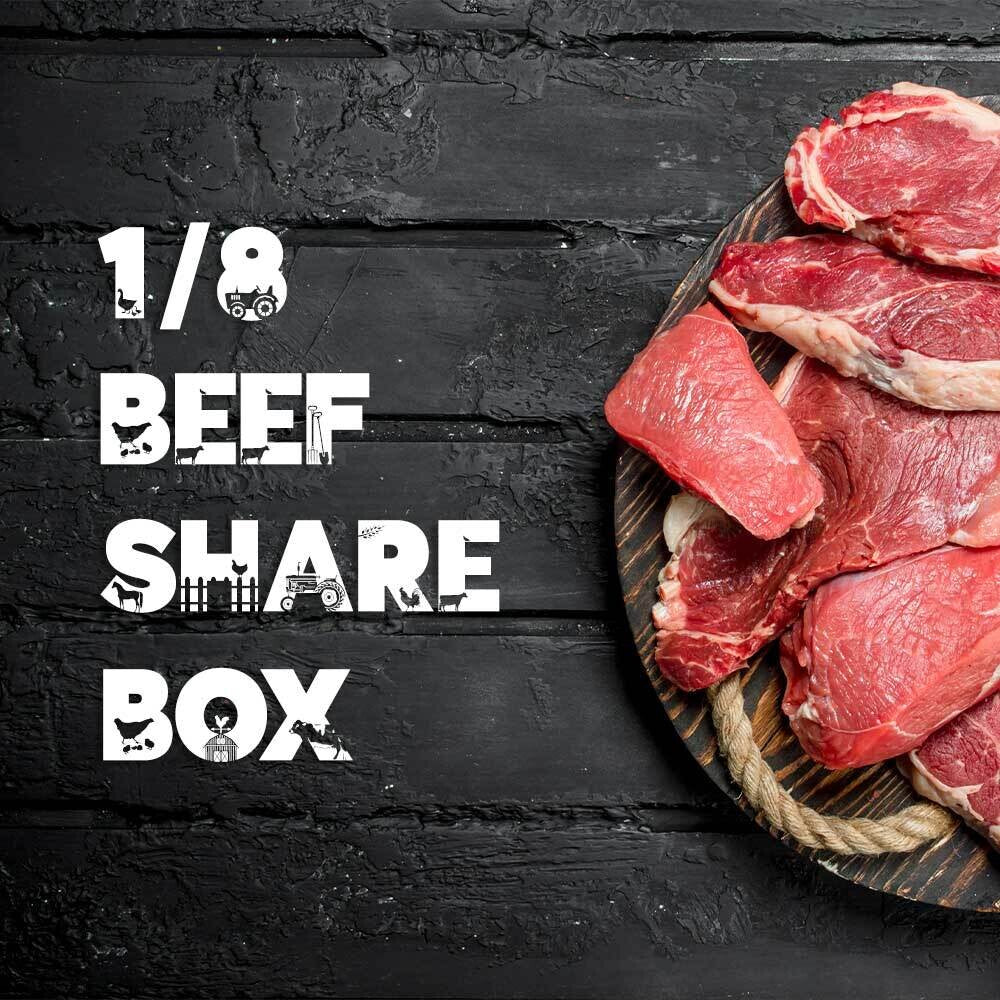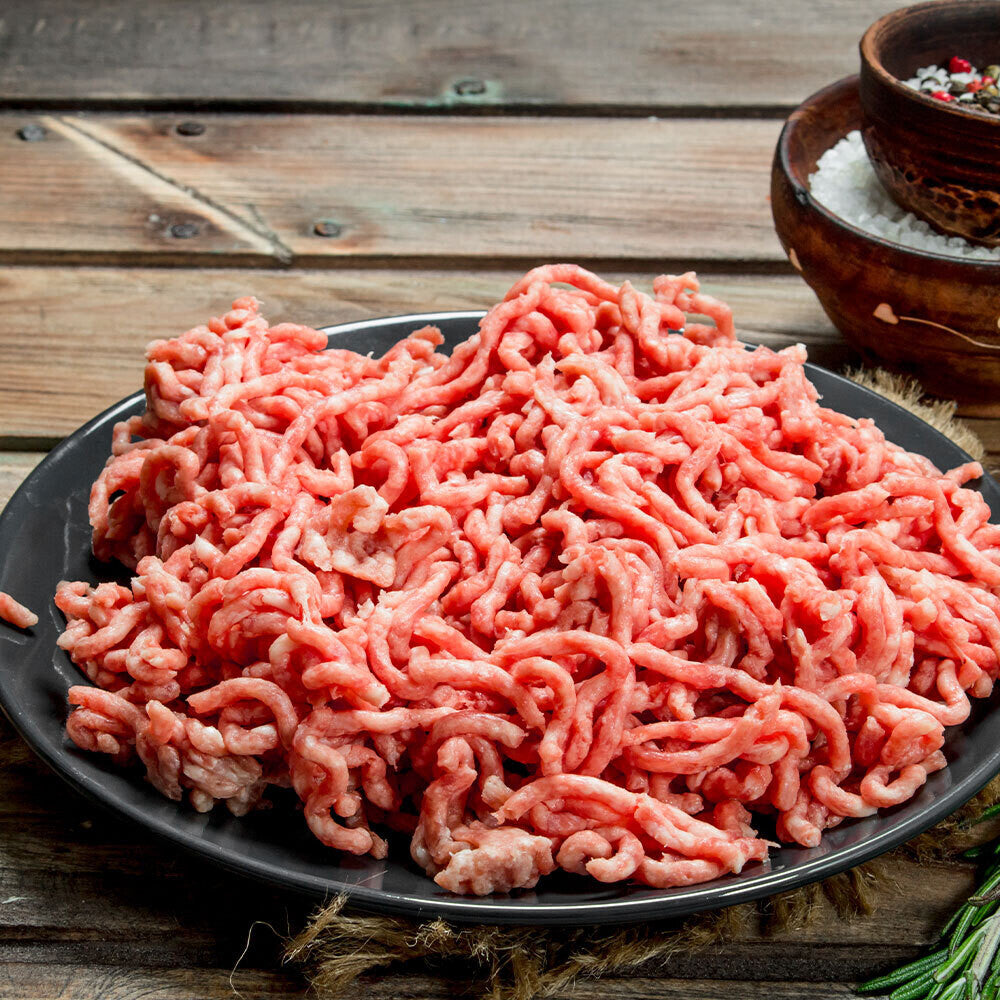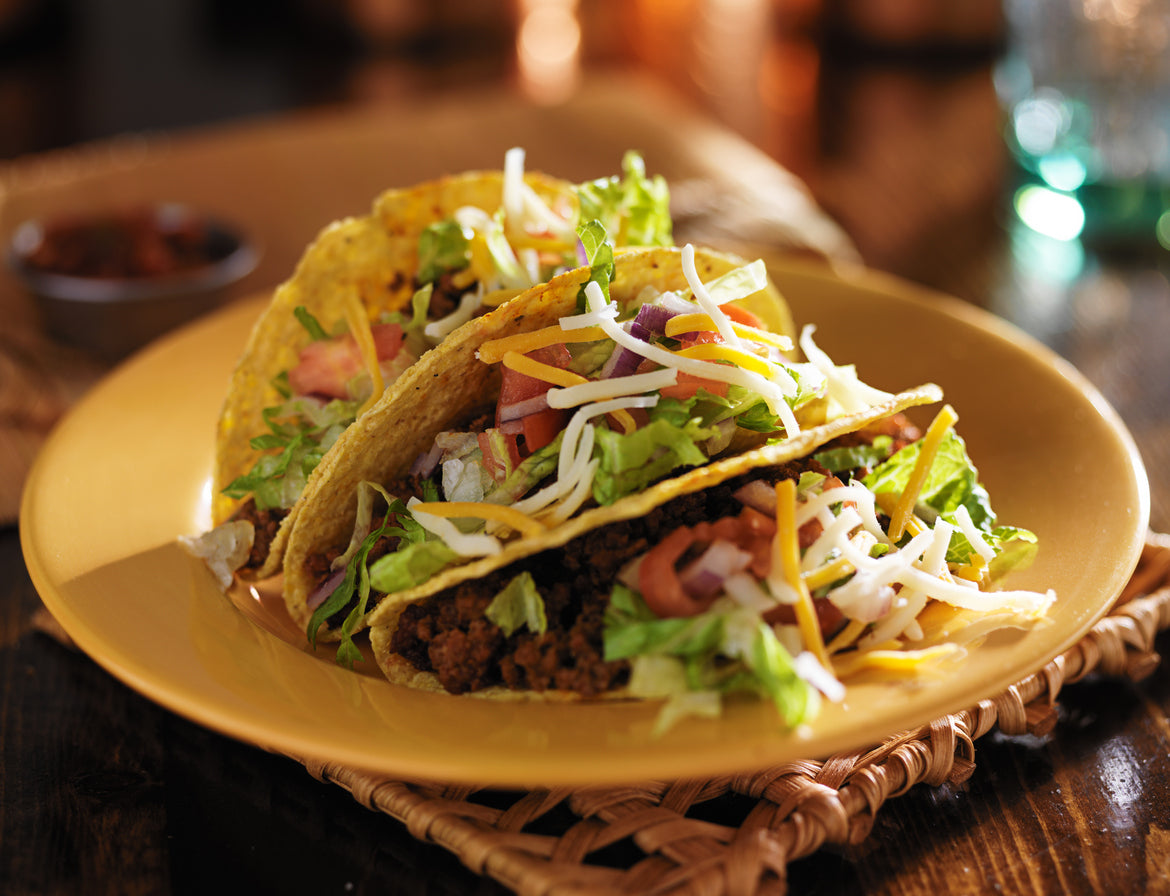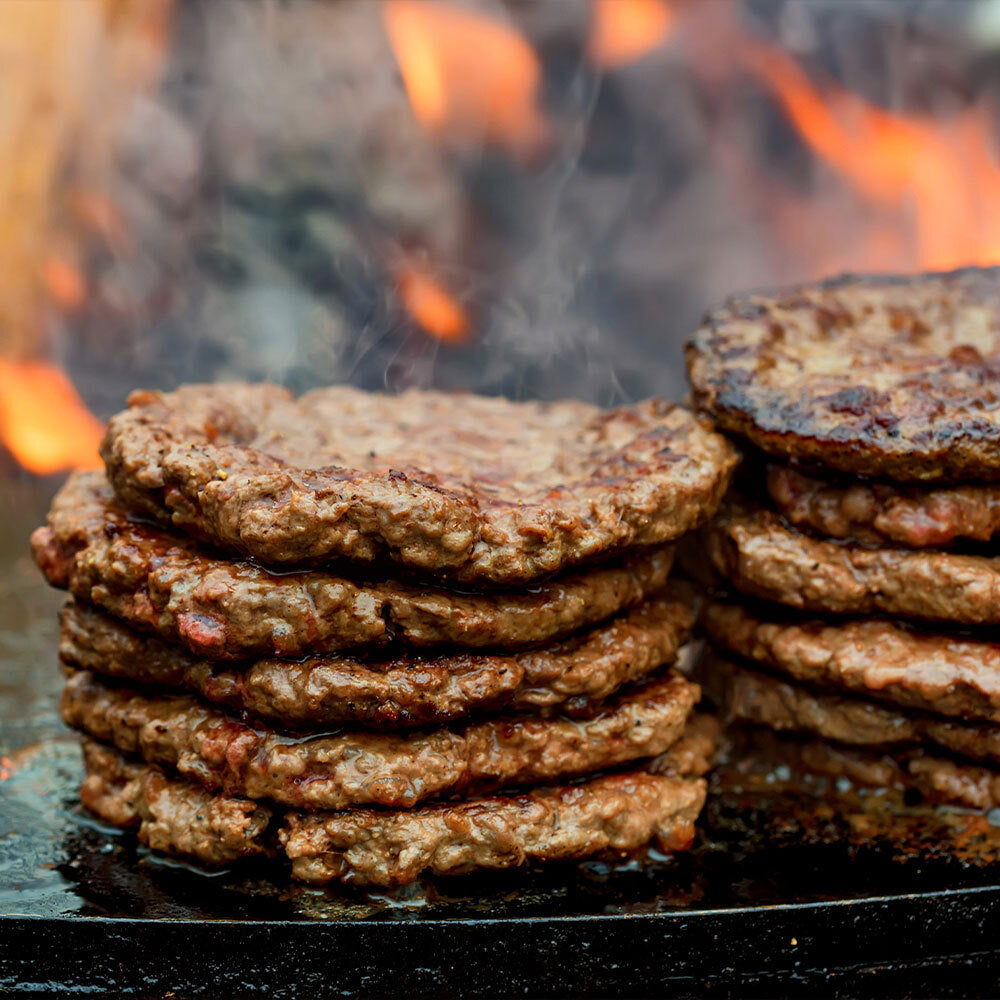
Saving Calves from Feedlots: Tyner Pond Farm's Mission for a Better Future
At Tyner Pond Farm we believe that raising cattle in a regenerative farm environment is better for both animal welfare and the environment. Unfortunately, not all producers share our beliefs, and many calves are raised in feedlot systems which often result in poor living conditions, health issues and environmental harm.
 Happy Tyner Pond Calf
That's why we've taken on a mission to rescue these calves and give them a better life.
To achieve this goal, we've created a fund to solicit donations from our supporters. These funds will be used to purchase calves to before the enter the feedlot system and bring them to our regenerative farm where they will receive a natural diet, improved living conditions, and an environment that promotes their overall well-being.
Happy Tyner Pond Calf
That's why we've taken on a mission to rescue these calves and give them a better life.
To achieve this goal, we've created a fund to solicit donations from our supporters. These funds will be used to purchase calves to before the enter the feedlot system and bring them to our regenerative farm where they will receive a natural diet, improved living conditions, and an environment that promotes their overall well-being.
 Sometimes Rescue Calves need a little help
The benefits of raising cattle in a regenerative farm environment are numerous.
By feeding our calves a diet of grass and other forages, we can promote good health and eliminate the need for antibiotics.
Regenerative farming practices also help to promote soil health, conserve water, and reduce carbon emissions making these practices a more sustainable method of raising cattle.
In addition to benefiting the cattle and the environment, regenerative farming also supports local communities and the economy. By using sustainable methods, we are able to reduce the use of harmful chemicals, preserve natural resources, and promote a healthier environment for all.
Sometimes Rescue Calves need a little help
The benefits of raising cattle in a regenerative farm environment are numerous.
By feeding our calves a diet of grass and other forages, we can promote good health and eliminate the need for antibiotics.
Regenerative farming practices also help to promote soil health, conserve water, and reduce carbon emissions making these practices a more sustainable method of raising cattle.
In addition to benefiting the cattle and the environment, regenerative farming also supports local communities and the economy. By using sustainable methods, we are able to reduce the use of harmful chemicals, preserve natural resources, and promote a healthier environment for all.
 Rescue Calf @ Tyner Pond Farm
At Tyner Pond Farm we believe that every calf deserves a chance to live a healthy and happy life. By rescuing calves from a life in the feedlot system and giving them a home on our regenerative farm we are working towards a better future for both animals and the environment. We ask for your support in our mission to make a difference. Any contribution, big or small, can help us save more calves from a life in feedlots.
Please join us in making a difference by supporting our mission to save calves from feedlots. Donate to our fund today and be part of a better future for animals and the environment.
Rescue Calf @ Tyner Pond Farm
At Tyner Pond Farm we believe that every calf deserves a chance to live a healthy and happy life. By rescuing calves from a life in the feedlot system and giving them a home on our regenerative farm we are working towards a better future for both animals and the environment. We ask for your support in our mission to make a difference. Any contribution, big or small, can help us save more calves from a life in feedlots.
Please join us in making a difference by supporting our mission to save calves from feedlots. Donate to our fund today and be part of a better future for animals and the environment.


 Happy Tyner Pond Calf
That's why we've taken on a mission to rescue these calves and give them a better life.
To achieve this goal, we've created a fund to solicit donations from our supporters. These funds will be used to purchase calves to before the enter the feedlot system and bring them to our regenerative farm where they will receive a natural diet, improved living conditions, and an environment that promotes their overall well-being.
Happy Tyner Pond Calf
That's why we've taken on a mission to rescue these calves and give them a better life.
To achieve this goal, we've created a fund to solicit donations from our supporters. These funds will be used to purchase calves to before the enter the feedlot system and bring them to our regenerative farm where they will receive a natural diet, improved living conditions, and an environment that promotes their overall well-being.
 Sometimes Rescue Calves need a little help
The benefits of raising cattle in a regenerative farm environment are numerous.
By feeding our calves a diet of grass and other forages, we can promote good health and eliminate the need for antibiotics.
Regenerative farming practices also help to promote soil health, conserve water, and reduce carbon emissions making these practices a more sustainable method of raising cattle.
In addition to benefiting the cattle and the environment, regenerative farming also supports local communities and the economy. By using sustainable methods, we are able to reduce the use of harmful chemicals, preserve natural resources, and promote a healthier environment for all.
Sometimes Rescue Calves need a little help
The benefits of raising cattle in a regenerative farm environment are numerous.
By feeding our calves a diet of grass and other forages, we can promote good health and eliminate the need for antibiotics.
Regenerative farming practices also help to promote soil health, conserve water, and reduce carbon emissions making these practices a more sustainable method of raising cattle.
In addition to benefiting the cattle and the environment, regenerative farming also supports local communities and the economy. By using sustainable methods, we are able to reduce the use of harmful chemicals, preserve natural resources, and promote a healthier environment for all.
 Rescue Calf @ Tyner Pond Farm
At Tyner Pond Farm we believe that every calf deserves a chance to live a healthy and happy life. By rescuing calves from a life in the feedlot system and giving them a home on our regenerative farm we are working towards a better future for both animals and the environment. We ask for your support in our mission to make a difference. Any contribution, big or small, can help us save more calves from a life in feedlots.
Please join us in making a difference by supporting our mission to save calves from feedlots. Donate to our fund today and be part of a better future for animals and the environment.
Rescue Calf @ Tyner Pond Farm
At Tyner Pond Farm we believe that every calf deserves a chance to live a healthy and happy life. By rescuing calves from a life in the feedlot system and giving them a home on our regenerative farm we are working towards a better future for both animals and the environment. We ask for your support in our mission to make a difference. Any contribution, big or small, can help us save more calves from a life in feedlots.
Please join us in making a difference by supporting our mission to save calves from feedlots. Donate to our fund today and be part of a better future for animals and the environment.

Learn More:
Feedlot cattle farming is a prevalent method of raising cattle for meat production and has come under scrutiny in recent years due to the numerous problems associated with it. This post will outline the troubles with feedlot cattle feeding and the advantages of raising calves in a regenerative farm environment.Troubles with Feedlot Cattle Feeding:
Health issues: Feedlot cattle are often fed a diet consisting of grains, soy, and other food by-products which can cause health problems such as acidosis, liver abscesses, and other digestive disorders. Antibiotic use: To prevent and treat the health problems caused by the unnatural diet, feedlot cattle are given high doses of antibiotics which contribute to the growing problem of antibiotic resistance. Poor living conditions: Feedlot cattle are housed in crowded, unsanitary conditions which can spread diseases and lead to further health problems. Environmental impact: The large concentration of cattle in feedlots generates a significant amount of manure which can contaminate nearby water sources and contribute to air pollution.Advantages of Regenerative Farming for Calves:
Natural diet: Calves raised in a regenerative farm environment are fed a diet of grass and other vegetation which is natural and promotes good health. No antibiotics: Regenerative farming practices eliminate the need for antibiotics which reduces the risk of antibiotic resistance and promotes overall health. Improved living conditions: Regenerative farms provide a more natural and spacious living environment for calves which reduces the risk of disease and promotes physical and behavioral well-being. Sustainable: Regenerative farming practices help to promote soil health, conserve water, and reduce greenhouse gas emissions making it a more sustainable method of raising cattle. So while feedlot cattle farming may be a cheap and convenient method of producing beef, it comes with numerous problems that can impact the health of the cattle, the environment, and even the consumers of feedlot beef. On the other hand, regenerative farming offers a more sustainable and healthy alternative promoting the well-being of both the cattle and the environment.
Tags:
Previous post
The Power of Grasslands: The Benefits of Restoring Grassland Ecosystems for Environmental Regeneration
Next post
